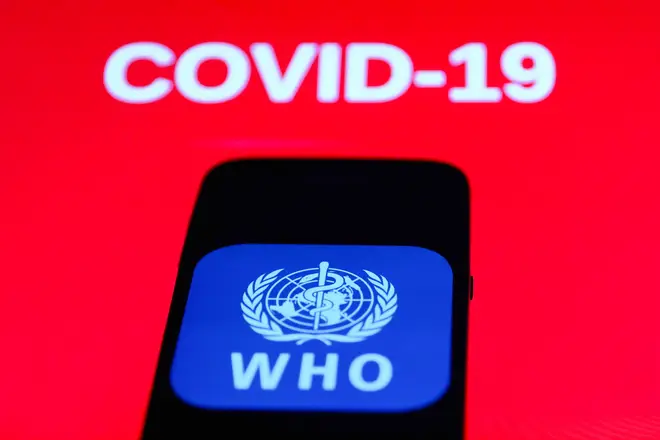
Ben Kentish 10pm - 1am
1 June 2021, 08:41

The World Health Organisation (WHO) has renamed Covid-19 variants using the Greek alphabet, with the UK's so-called Kent variant (B.1.1.7) designated as Alpha.
The new labels for each variant will be replacing the location-based names used colloquially, such as the Indian variant.
The WHO said this was to remove stigma around each name and simplify the system, so it was easier to remember.
Multiple systems were reviewed with wide consultation, before the new labels were chosen.
Read more: Surge testing deployed in Canterbury after surge in Indian variant
Read more: Vietnamese experts find new virus variant – hybrid of India and UK strains
Today WHO has announced a new naming system for key #COVID19 variants. The labels are based on the Greek alphabet (i.e. Alpha, Beta, Gamma, etc), making them simple, easy to say and remember.
— World Health Organization (WHO) (@WHO) May 31, 2021
👉 https://t.co/aYCZfspZyb pic.twitter.com/Gxt14fwVqF
The UK/Kent variant (B.1.1.7) is Alpha.
The South African variant (B.1.351) is Beta.
The Brazilian variant (P.1) is Gamma.
The Indian variant (B.1.617.2) is Delta.

Scully: Government will call variants Alpha, Beta, Delta
There are variants of interest to WHO too, including:
A US variant (B.1.427/B.1.429) named Epsilon.
P.2, found in Brazil, named Zeta.
B.1.525, found in multiple countries, named Eta.
P3, found in the Philippines, named Theta.
B.1.526, found in the US, named Iota.
B.1.617.1, found in India, named Kappa.
Read more: Thousands vaccinated as Twickenham Stadium transformed into walk-in Covid jab centre
Read more: Army called in to deliver 12,000 Covid test kits in Bolton

'Bad decision' to end lockdown on 21 June
The scientific names for each variant will remain the same for research, as they provide important scientific information.
WHO said: "While they have their advantages, these scientific names can be difficult to say and recall, and are prone to misreporting."
"As a result, people often resort to calling variants by the places where they are detected, which is stigmatising and discriminatory.
"To avoid this and to simplify public communications, WHO encourages national authorities, media outlets and others to adopt these new labels."